
Yalal AdDin Muhammad Rumi Indígena
Jalāl ad-Dīn Muhammad Rūmī (Persian: جلالالدین محمد رومی), also known as Jalāl ad-Dīn Muhammad Balkhī (جلالالدین محمد بلخى), Mevlânâ/Mawlānā (مولانا, "our master"), Mevlevî/Mawlawī (مولوی, "my master"), and more popularly simply as Rumi (30 September 1207 - 17 December 1273), was a 13th-century Persian poet, faqih, Islamic scholar, theologian.
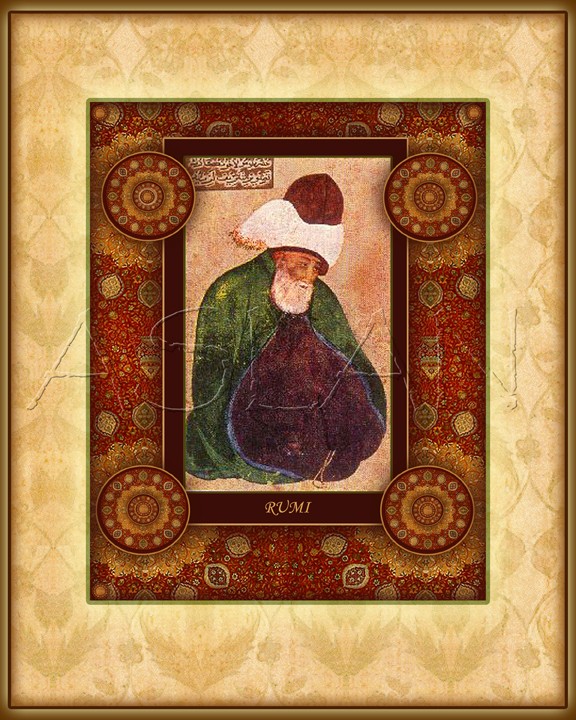
Mevlana JalalUdDin Muhammad Rumi مولانا جلالالدین محمد بلخی شراب
Combining an unparalleled familiarity with the source material, a total and critical understanding of the subject, and a powerful and readable prose style, this is an extraordinary study of a truly.
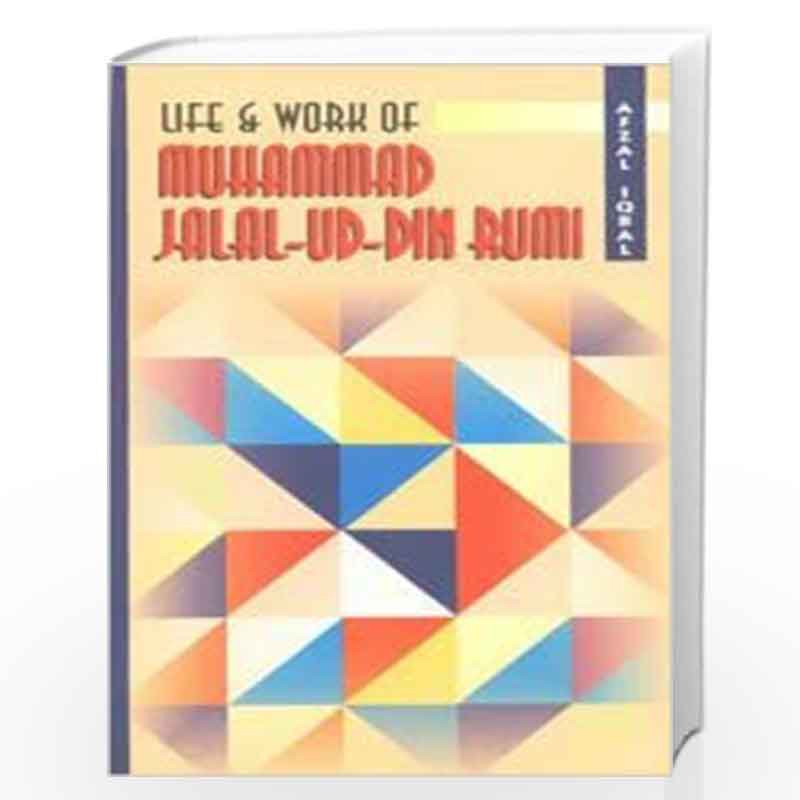
Life and Work of Muhammad JalalUdDin Rumi by Afzal IqbalBuy Online
Career . Jalal al-Din Rumi was born in Balkh in northwestern Afghanistan and migrated with his father to present-day Turkey around 1217. In 1229 he settled in Konya, where he made his home for the rest of his life. His father, Baha' al-Din, was a religious scholar and a Sufi who wrote an important Sufi work, a/-Ma'arif (Ways of Knowledge).

The life and work of Jalaluddin Rumi Islamic Book Trust Online
RUMI, JALALUDDIN (1207-1273)Jalaluddin Rumi is the name by which the Persian poet Jalal al-Din Mohammad-e Balkhi is conventionally known in the West. In the Muslim world he is generally called Maulavi or Maulana (Mevlana in Turkish), meaning, respectively, "my master" or "our master," a title reflecting the veneration in which he was held by his followers, who formed the Mevlevi (Maulaviyya.
Jalal alDin Rumi
Rumi is perhaps the only example in world literature of a devoted prose writer who suddenly burst forth into poetry during middle age to become a truly great mystical poet for all time. This book, a long-overdue reckoning of his life and work, begins with a description and examination of theliving conditions in 13th-century Persia. Building on this context, Afzal Iqbal proceeds to fully.
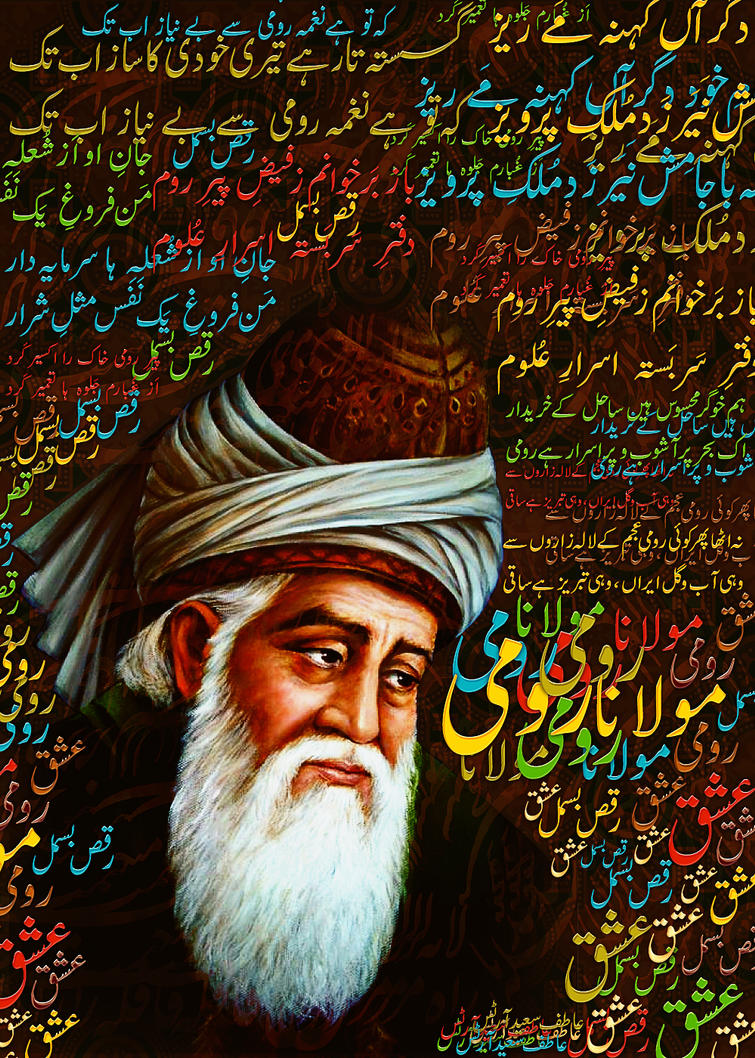
Molana Jalal ud Din Rumi R.A by atifsaeedicmap on DeviantArt
Rumi's father Muhammad Bahaeddin Walad was a notable Sufi and scholar in Balkh, which was under Khwarazmi rule, yet had to flee the country because of a political dispute with Alaaddin Muhammad, the Sultan.. when the famous dervish poet Farid ud-din 'Attar instantly identified the spiritual eminence of the two, crying out "Here comes a.

Great Poet Moulana Jalaluddin Rumi The New Nation
Rumi Biography - Jalal ad Din Muhammad Rumi known as 'Rumi' in English was a great mystical poet, jurist, theologian and master of the spiritual world.. He was trained and taught the ways of the 'Sharia' or 'Islamic way' by his father's student Sayyed Burhan ud-Din Muhaqqiq Termazi. Rumi observed Sufism for almost a decade till.

Jalaluddin Rumi, Ketika Sang Guru Meminta Arak Referensi Generasi Muda
Sufism inspired writings of Persian poet and mystic Jalal ad-Din Muhammad ar-Rumi; these writings express the longing of the soul for union with the divine. Jalāl ad-Dīn Muhammad Rūmī - also known as Jalāl ad-Dīn Muhammad Balkhī, Mevlânâ/Mawlānā (مولانا, "our master"), Mevlevî/Mawlawī (مولوی, "my master") and more popularly simply as Rumi - was a 13th-century Persian.

Maulana Jalaluddin Rumi (604671H). TVTarekat
(October 2011) Jalal ad-Din Muhammad Rumi (30 September 1207 - 17 December 1273), which means Our Master, is one of the Islamic world's greatest poets. He is usually known in the English-speaking world simply as Rumi. He is a Sufi mystic, philosopher and lover of humanity.
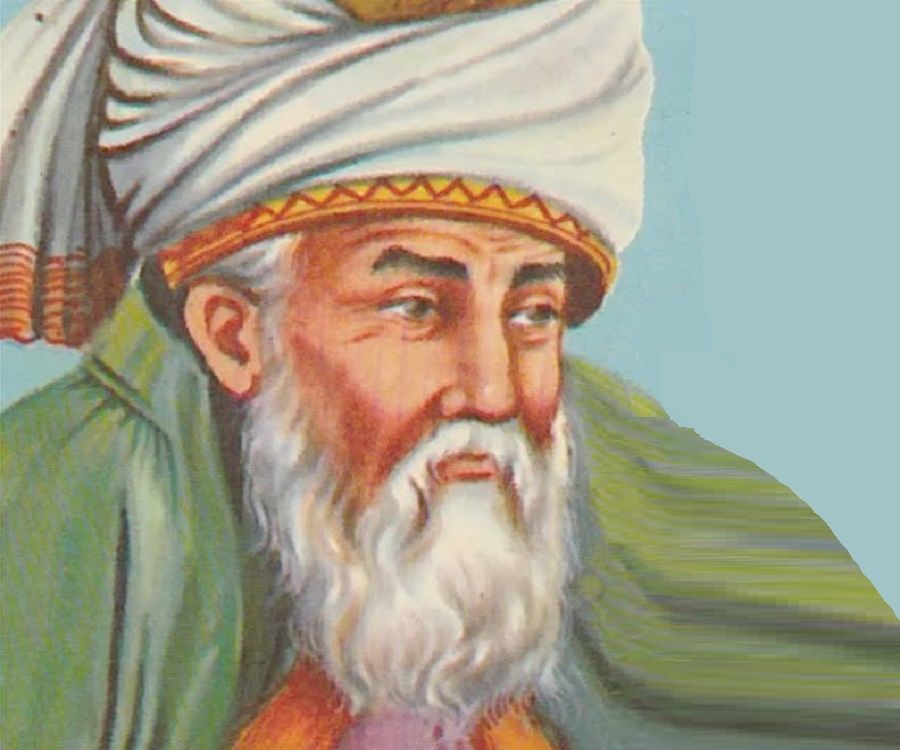
Biografi Jalaludin Rumi
Jalal ad-Din Muhammad Rumi (also given as Jalal ad-did Muhammad Balkhi, best known as Rumi, l. 1207-1273 CE) was a Persian Islamic theologian and scholar but became famous as a mystical poet whose work focuses on the opportunity for a meaningful and elevated life through personal knowledge and love of God.

Life of Molana Jalal Ud Din Rumi English Literature YouTube
The Persian poet and Sufi mystic Jalai ed-Din Rumi (1207-1273) was a brilliant lyrical poet who founded his own religious order, the Mevlevis. His poetry showed original religious and wonderfully esoteric forms of expression. The unsurpassable peak of all Sufi thought was reached in the thought of Jalal ed-Din Rumi, born in Balkh.
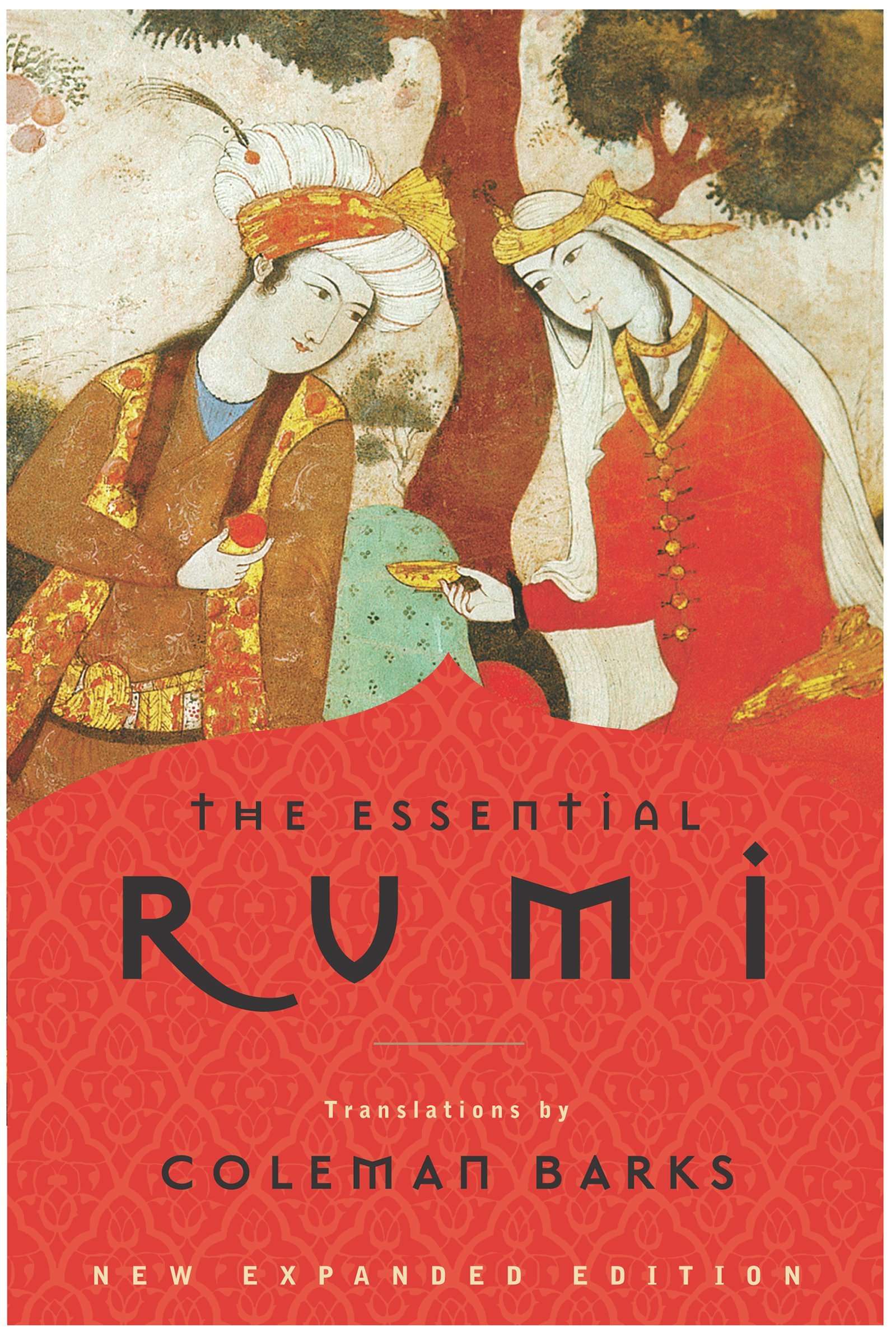
'The Essential Rumi' by Jalal adDin Muhammad Rumi Business Insider India
Jalāl al-Dīn Muḥammad Rūmī ( Persian: جلالالدین مُحمّد رُومی ), or simply Rumi (30 September 1207 - 17 December 1273), was a 13th-century poet, Hanafi faqih, Islamic scholar, Maturidi theologian and Sufi mystic originally from Greater Khorasan in Greater Iran. [8] [9]
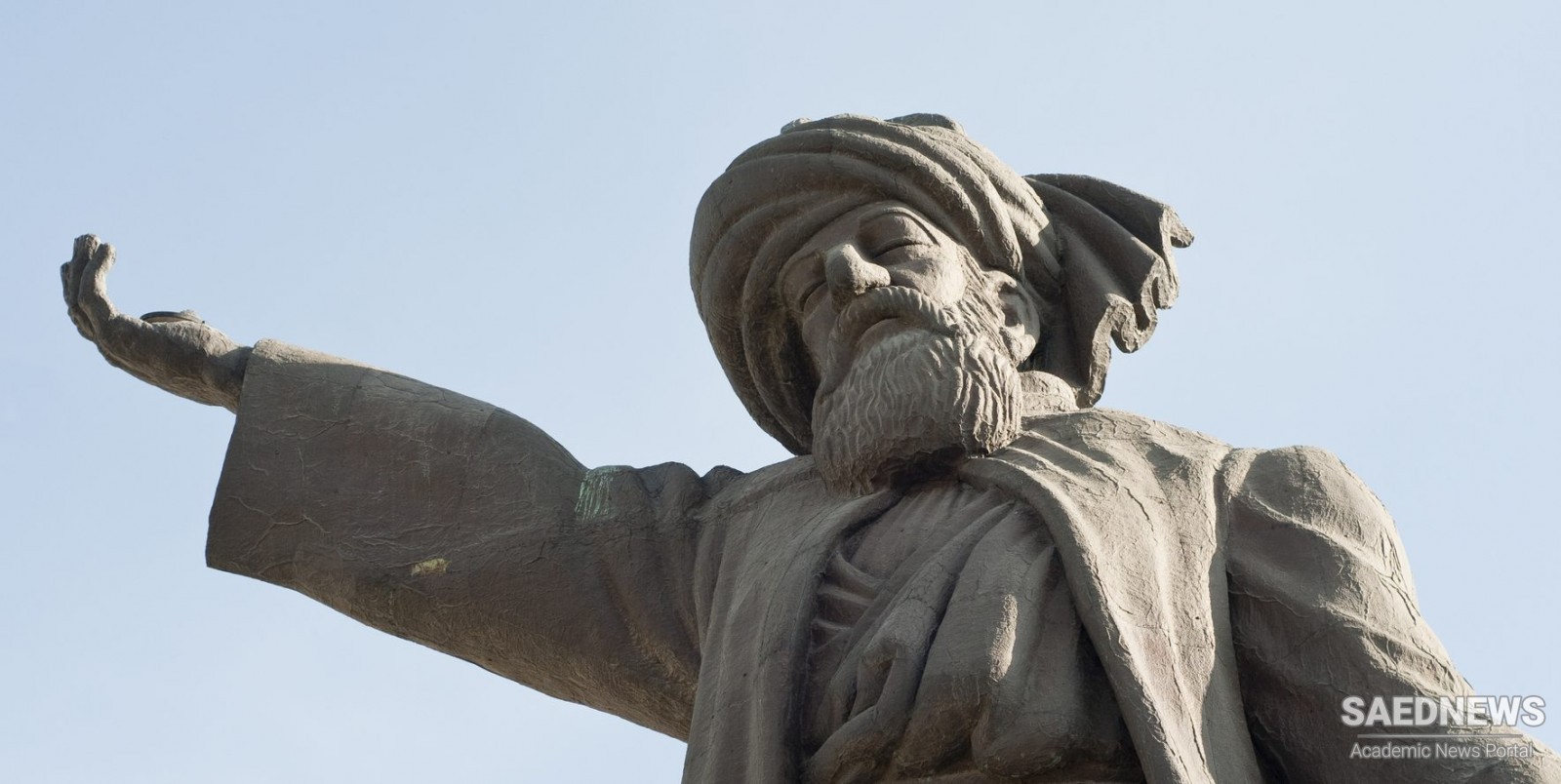
Maulana Jalal Al Din Mohammad Rumi King of Mystical Poetry and Wisdom
2350 quotes from Rumi (Jalal ad-Din Muhammad ar-Rumi): 'Your task is not to seek for love, but merely to seek and find all the barriers within yourself that you have built against it.', 'Out beyond ideas of wrongdoing and rightdoing there is a field. I'll meet you there. When the soul lies down in that grass the world is too full to talk about.', and 'The wound is the place where the Light.

Story of Jalaluldin Muhammad Rumi by Maulana Tariq Jameel 2016 YouTube
Mawlānā Jalāl ad-Dīn Muhammad Rūmī (1207 - 1273 C.E.) (مولانا جلال الدین محمد رومی), known to the English-speaking world simply as Rumi, was a mystical thirteenth century Persian Sufi poet, jurist, and theologian.His first name Jalalu'ddin has the meaning Majesty of Religion.. Rumi wrote over 65,000 verses of intoxicated poetry on the Sufi path of love and.
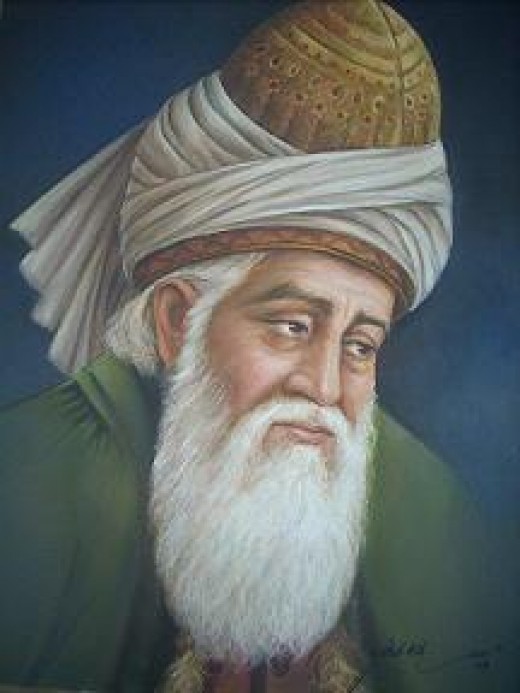
A Look At Poetry, The Melody of the Heart hubpages
1207-1273 Sufi mystic Jalal al-Din Rumi was born Jalal al-Din Mohammad-e Balkhi on the edge of the Persian Empire, in Balkh in modern-day Afghanistan (though another birthplace in Tajikistan is also claimed). The son of Baha' al-Din-e Valad, a noted scholar and theologian, Rumi's family fled the Mongols, settling in Samarkand and then Anatolia.

The Life and Work of Jalaluddin Rumi
Read poems by this poet Mowlānā Jalāloddin Balkhi, known in Persia as Jalāl ad-Dīn Muhammad Balkhī and in the West as Rumi, was born on September 30, 1207, in Balkh Province, Afghanistan, on the eastern edge of the Persian Empire.